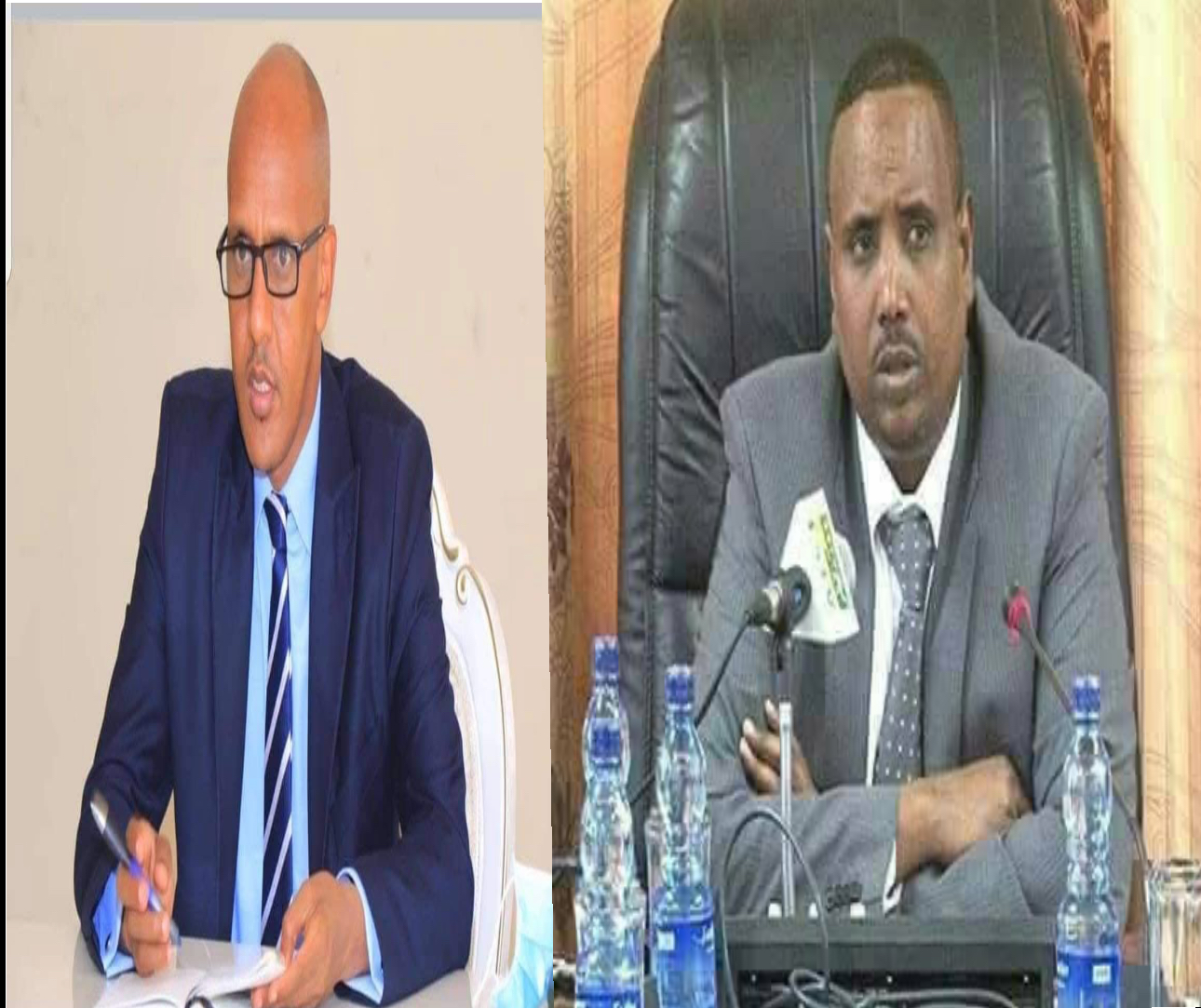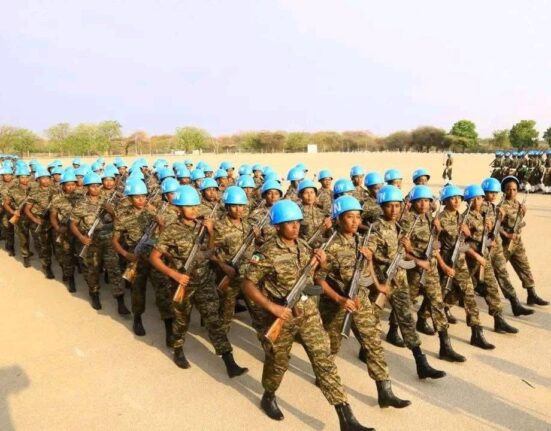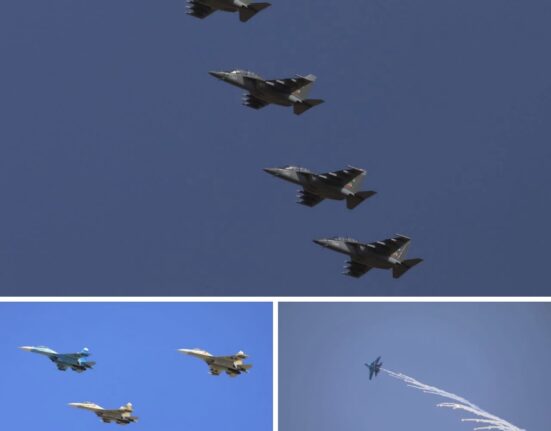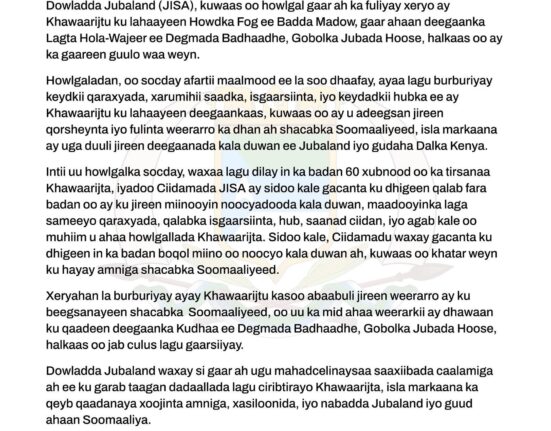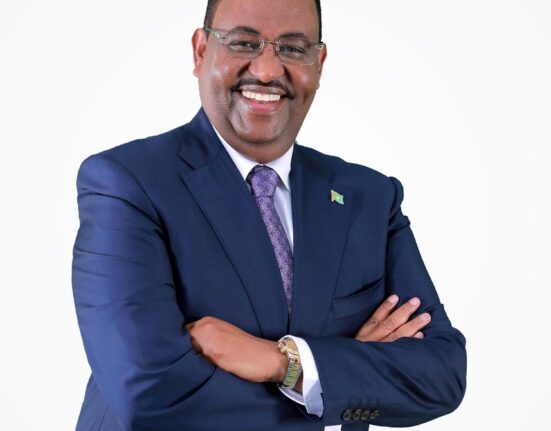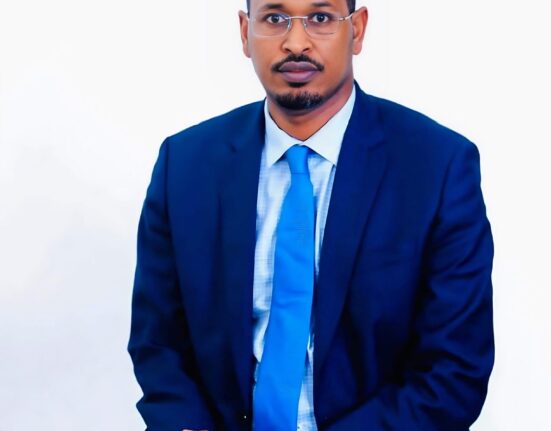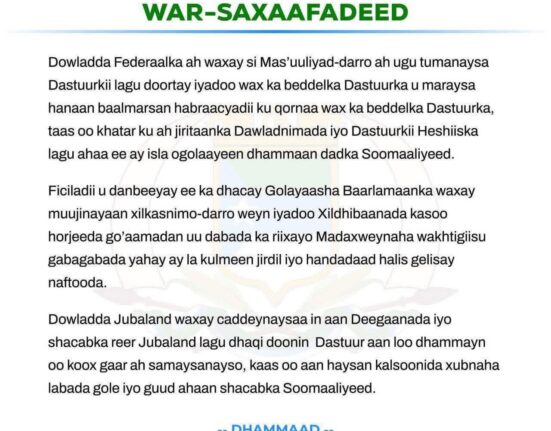By. Mohamed Farah
A troubling political pattern has taken hold in the Somali Regional State of Ethiopia: leaders who have spent years in power with little to show for it suddenly rebrand themselves as fierce Somali nationalists, only when their tenure is about to end. This last-minute patriotism is not rooted in principle, but in panic. It’s a calculated move to sway public opinion, block scrutiny, and paint critics as traitors.
When the End is Near, the Flag Comes Out
Time and again, leaders in the Somali Region resort to worn-out slogans when they sense their exit is imminent. They begin to say:
• “We are defending Somali land.”
• “We are being punished for protecting Somali interests.”
• “We are pushing for better Somali representation at the federal level.”
• “We are dreaming of independence, but some Somalis are sabotaging us by revealing our plans to Addis Ababa.”
This pattern is not accidental. It is a political tactic, a last attempt to salvage legitimacy by invoking identity and playing the victim card. The accusations extend to Somali elders in Addis Ababa, who are branded “agents of the enemy” simply for raising concerns or calling for accountability. According to this logic, any elder who criticizes the president is seen as giving the federal government a green light to intervene or replace regional leadership.
This is exactly what happened under Abdi Mohamud Omar, and it is being repeated almost identically by Mustafe Omer, though many analysts now believe that Mustafe is even more dangerous due to his deep, covert networks.
A Pattern of Power and Deception: From Abdi to Mustafe
The current situation follows an eerie evolution:
1. Political Affiliation and Strategy
• Abdi Omar was a product of the TPLF-controlled Somali People’s Democratic Party (SPDP). Though oppressive, his politics were limited to loyalty to the TPLF, and his end came as TPLF lost federal dominance.
• Mustafe Omer, on the other hand, belongs to the same party as PM Abiy Ahmed the Prosperity Party. Despite sharing party ideology, Mustafe appears to be running a counter-strategy within the party, acting against federal cohesion.
2. National Interest vs. Foreign Links
• Abdi Omar, despite his brutality, did not betray Ethiopian national interests. He was insular and focused on internal control.
• Mustafe Omer, however, is increasingly suspected of working against Ethiopian national unity, with reported connections to foreign actors, including Somalia and Egypt. His past employment with the United Nations raises further questions about where his loyalties lie and who might be backing him behind the scenes.
3. Loyalty vs. Betrayal
• Abdi Omar remained loyal to his TPLF patrons until the end.
• Mustafe Omer, however, turned against the very OPDO figures who lobbied for his appointment. He now fights back against his political godfathers aligning instead with controversial Amhara elites like Gedu Andargachew and Andargachew Tsige, and reportedly funding opposition figures like Jawar Mohammed in preparation for a post-Abiy political order.
4. Local Governance or Foreign Ambition?
• Abdi Omar was seen as a local strongman not connected to international spy networks or diplomacy circles.
• Mustafe is rumored to maintain ties with international intelligence agencies, including the CIA and other Western institutions. Some believe he is grooming himself for an international career post-politics, possibly explaining his interest in global visibility over regional development.
5. Controversial Woreda Nominations
• Abdi Omar made multiple appointments in his final days, but avoided the sensitive Oromo-Somali border areas.
• Mustafe Omer has taken a bolder, more divisive route nominating over 14 woredas and zones, many in border regions, seen as provocative by both somali residents and Oromia Residents and Officials . These actions are viewed as intentionally destabilizing.
6. Conflict as a Political Weapon
• Abdi Omar’s fall came amid ethnic conflicts manipulated by TPLF interests.
• Mustafe, however, is believed to be orchestrating tensions deliberately, pushing conflict narratives and inviting unrest along ethnic lines, possibly in coordination with opposition groups like OLA and FANO to destabilize Ethiopia and gain leverage for political bargaining.
Public Patriotism, Private Power Games
The truth behind these last-minute nationalist outbursts is not heroism it is desperation. Leaders who have failed to deliver governance, development, or peace are seeking refuge in emotional appeals to Somali identity. They weaponize patriotism to mask failures and escape the inevitable demand for accountability.
By the time a leader wraps themselves in the Somali flag, they have usually already betrayed the people it represents. This is not patriotism. It is performance.
Conclusion: The People Are Waking Up
The Somali public is increasingly aware that patriotism declared at the edge of political death is a fraud. The time has come to demand leadership that shows courage and national commitment from day one, not in the final weeks. Leaders who resort to nationalism only when their seat is under threat do not deserve to speak in the name of the Somali people.
It is not nationalism.
It is survival politics and it must be called out for what it is.
By. Mohamed Farah
Political Analyst in Horn of Africa


